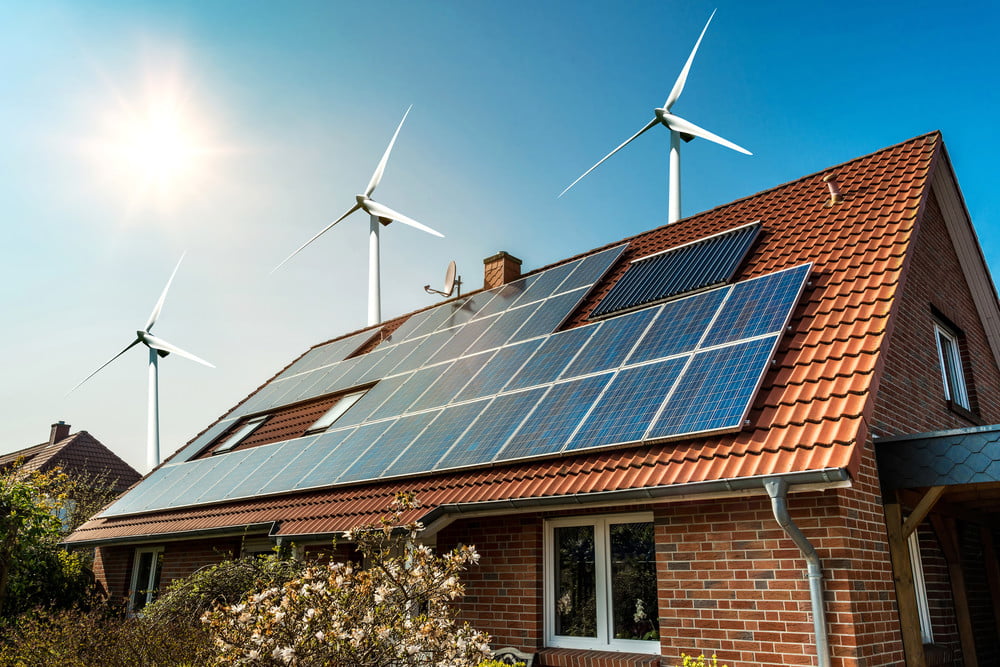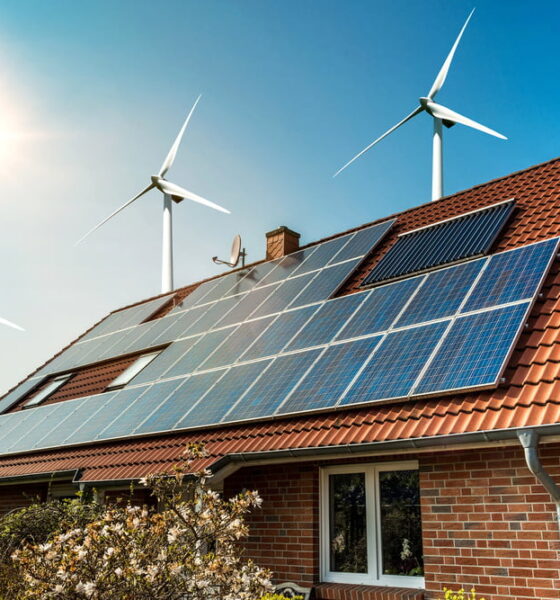

Business
How Businesses Can Save Money with Renewable Energy
Investing in renewable energy, much like other eco-solutions a company may wish to implement, is most often seen as a matter of responsibility. With a large proportion of the blame for the planet’s current environmental peril being laid at the door of large commercial enterprises, there is strong public opinion behind the idea of businesses doing what they can to reduce emissions, waste, and to invest in environmentally conscious energy sources.
Yet far more than just motivation for a better public image, expanding into renewable energy solutions can actually lead to significant savings for a company as well as a host of other benefits, which may ultimately translate into greater profit margins.
For one thing, the federal government now offers several business incentives for companies to invest in renewable technologies. Combined with the savings that can be made from using the technology itself, this makes renewable energy an attractive investment for many businesses.
Solar Energy Systems
Solar energy systems have been with us for quite some time now, and they are becoming less and less of an unusual sight upon the roofs of business premises and residential properties alike. Driving the proliferation of solar technology is nothing more complex than the fact that its price has been steadily decreasing as new manufacturing solutions have been found and the market for the products grows.
Many Fortune 500 companies are by now fully invested in solar power, receiving tax rebates and other incentives from the federal government designed to increase their use. However, a marked reluctance is still seen on the part of smaller companies. While this is perhaps understandable – with the cost and extent of the necessary initial investment remaining somewhat hefty – the number of smaller businesses investing in solar power is increasing, albeit slowly.
Embracing solar power allows businesses to avoid many of the costly disadvantages of relying entirely on fossil fuel-generated power. Not only can a business reduce its reliance on grid power and thus decrease its utility bills, but the pricing volatility associated with fossil fuels can be avoided also. This allows for more solid and reliable projections for utility spending.
Solar power systems are typically under warranty for 25 years and, over a lifetime of use, it has been calculated that any business premises could expect to make between $30,000 and $40,000 in utility savings. These are savings to be made which, in time, dwarf the initial investment in this technology.
Battery Energy Storage Systems
Battery energy storage systems, or BESS, allow for solar energy to be stored onsite in batteries for use when needed. This can save money for a business in one of two ways. Either excess solar power can be stored and used whenever needed, or power can be collected during the day and used at night in order to avoid the far more expensive evening grid power prices.
Battery energy storage systems also allow excess power to be sold. This is normally not an option for the smallest businesses, but where a clear energy surplus can be generated, many companies turn to selling this power to either the grid or other businesses. Investing in renewable energy not only makes for a huge saving but could also lead to a whole new revenue stream as well.
CSR Programs
CSR programs refer to the campaigns initiated by companies in order to improve their public image by means of demonstrating corporate social responsibility (CSR) in their business operations. CSR is a broad concept and can incorporate all sorts of socially responsible practices which, can, in turn, boost the brand of a particular company. This may include philanthropy, community outreach, ethical employment practices, and of course, investment in renewable energy.
Adopting renewable energy solutions is a terrific way to develop a CSR program. As well as generating positive publicity, CSR can help in attracting and retaining talent at a business, strengthening relationships with customers, and maintaining a good relationship with the community within which a business is located. It is difficult to quantify in monetary terms how much can be earned or saved through this practice, but it seems obvious that adopting a CSR program is good for business in the medium to long term.
Some statistics do however support the idea that sustainability leads to increased profit margins. Studies have shown that 66% of global consumers are willing to spend more on a product when it comes from a sustainable brand.
There is also a generational consideration when it comes to measuring the effect that corporate social responsibility has on business performance. Seventy-three percent of millennials show the same willingness to spend a little extra on a product that comes from a sustainable brand. Skewed in this way towards generations, it is clear in what direction the CSR trend is headed.
Costs of Installing Renewable Energy Technology
As previously mentioned, there can be some not insignificant costs associated with installing renewable energy technology at a business premise, especially if this is an extensive or advanced solar energy system with battery energy storage. Just like waste disposal systems or fire assembly signage, there is always an installation cost that businesses must bear in mind before they can start reaping the benefits of renewable energy systems.
The good thing is that the cost of such systems is in fact dropping every year. In a neat coincidence of trends, the popularity of renewable energy CSR programs is increasing just as the cost of installing the relevant technology is going down.
For solar panels, costs are also now lessened somewhat by federal solar tax credit, which is a subsidy that brings down the price of such systems. Like anything else, however, the cost of renewable energy systems will depend on how much equipment must be installed and how much labor is needed to install it.
For solar panel systems, the price is measured in kilowatts, which measures how much power these systems can actually generate. Prices begin at between five and six thousand dollars for a 2kw system and go up from there.
Whatever the cost, the world is surely waking up to the benefits of clean energy, and this, in turn, is incentivizing companies to invest in renewable solutions. If this trend continues, the benefits of doing so seem set to grow just as the cost of doing so seems set to plummet. In that sense, renewable energy is one of the best ways to truly invest in the future.


















